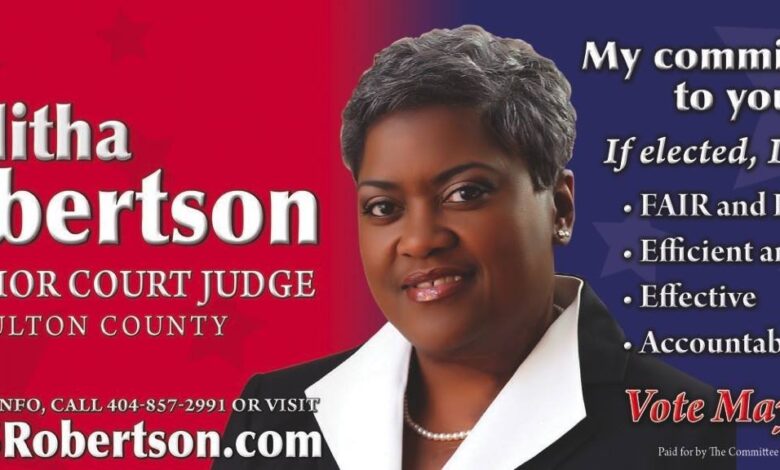Atlanta Attorney Convicted in Major PPP Loan Fraud Case

Shelitha Robertson, an Atlanta attorney and business owner, was found guilty of defrauding the federal government out of more than $7 million in Paycheck Protection Program (PPP) funds. This case highlights a significant abuse of the financial aid program intended to support small businesses during the COVID-19 pandemic.

Prosecutors charged Robertson with using the PPP funds for extravagant personal expenses, including purchasing a Rolls-Royce car, a motorcycle, and a 10-carat diamond ring worth $148,000. These allegations underscore the misuse of funds meant to provide relief to businesses struggling due to the pandemic.
Robertson’s trial concluded with a jury convicting her on three counts of wire fraud, one count of money laundering, and one count of conspiracy to commit wire fraud. After the verdict, Robertson, who had pleaded not guilty to all charges in December 2022, was taken into custody, awaiting her sentencing scheduled for April 11.
This case also involves Chandra Norton, Robertson’s former friend and personal attorney, who pleaded guilty in a separate prosecution related to the scheme. Federal prosecutors described Robertson and Norton as partners in crime, accusing them of colluding to obtain as much money as possible through PPP loans, eventually receiving almost $8 million.
Robertson’s defense team portrayed her as a victim of Norton’s scheme, suggesting that Norton used Robertson’s personal and business information for her gain. However, Robertson admitted to being aware of the fraudulent loan applications filed by Norton for her companies. Despite only one of her companies being operational with 13 employees, the loan applications for her companies falsely claimed a combined 427 employees and $2.8 million in monthly payroll expenses.
Prosecutor Bernita Malloy characterized Robertson as a participant in the fraud, arguing that she directed Norton to submit the false loan applications and determined the amount of money desired. Malloy critiqued Robertson’s defense as illogical and ludicrous, contending that Robertson’s actions were a deliberate attempt to evade detection and responsibility for her criminal behavior.
The conviction of Shelitha Robertson in this PPP loan fraud case serves as a stark reminder of the potential for abuse in government relief programs and the need for diligent oversight. It also highlights the legal consequences of exploiting such programs for personal gain. The legal community and the public at large await Robertson’s sentencing, which will conclude this high-profile case of financial fraud.





